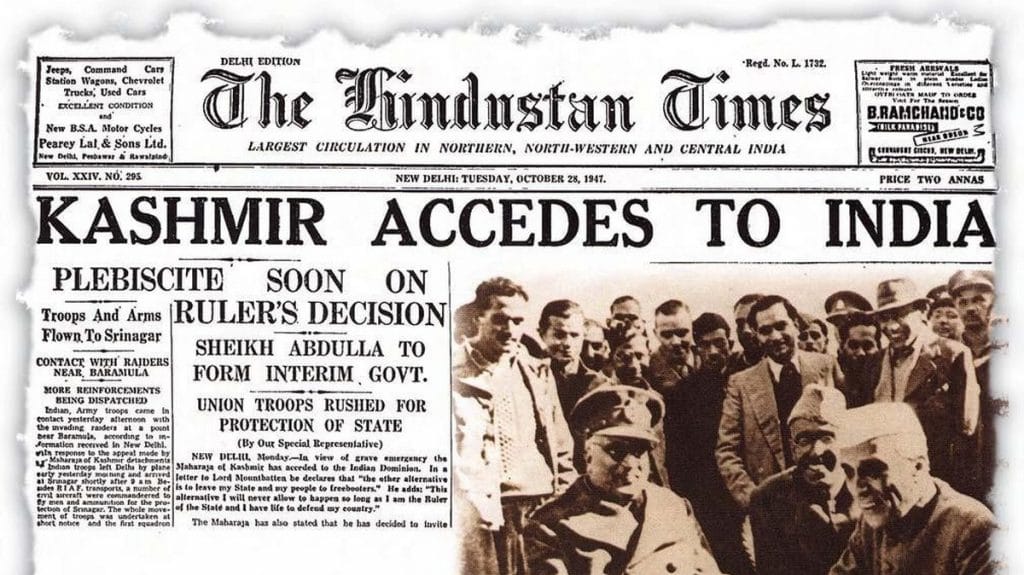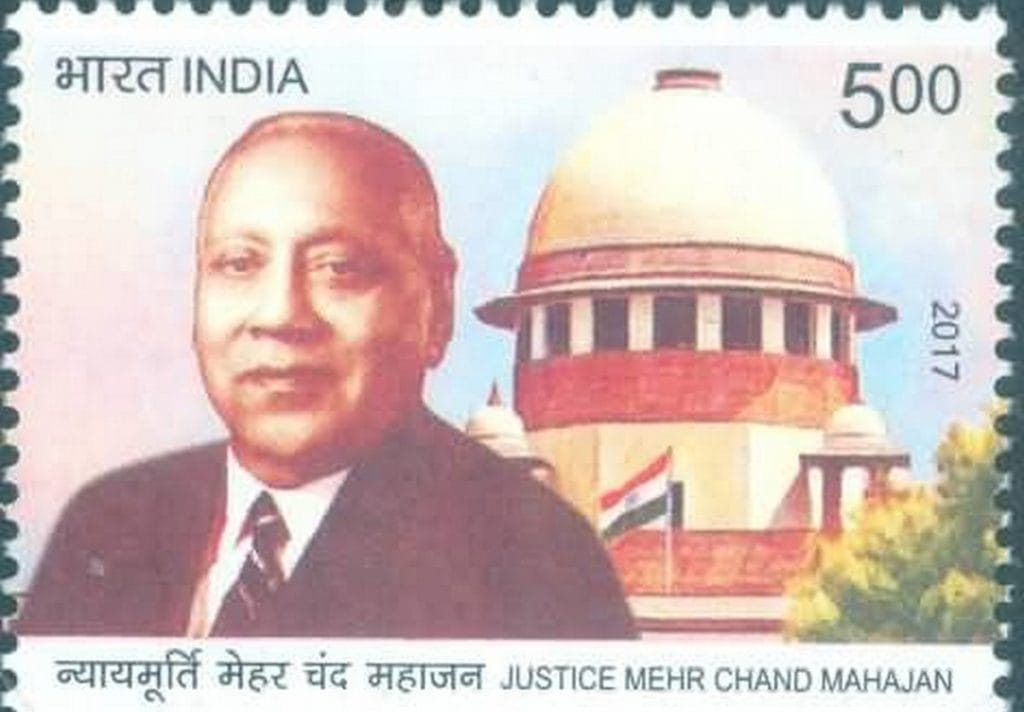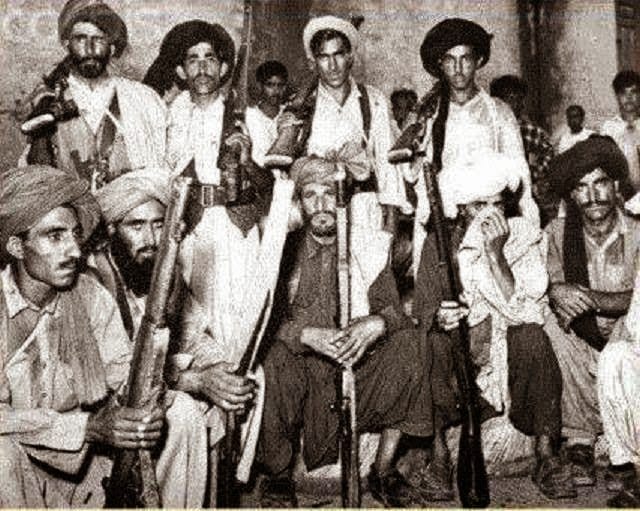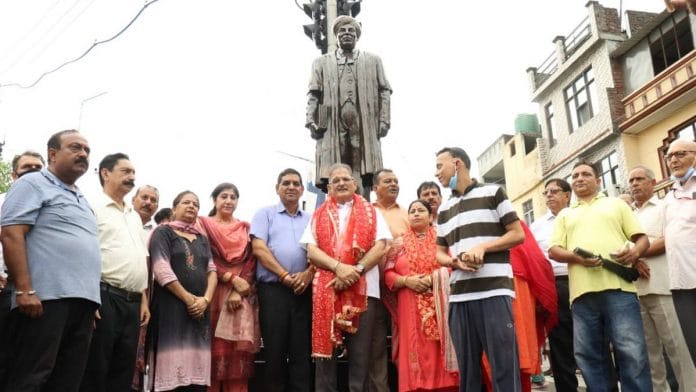New Delhi: Lahore judge Mehr Chand Mahajan was all set to begin a fresh chapter at the new High Court of East Punjab in Shimla, a few days after India’s Independence, when he received a letter from the Maharani of Kashmir, Tara Devi. She reminded him that he’d promised to interview with her husband, Maharaja Hari Singh, for the position of prime minister in the then princely state of Jammu and Kashmir.
A few weeks later, Mahajan went for the interview, was offered the post, and was “practically ordered” by Home Minister Sardar Patel to head to Srinagar, which he did in October 1947. Within a fortnight of Mahajan’s appointment — in the midst of a tribal invasion supported by Pakistan — the Dogra Maharaja signed the instrument of accession to India. Mahajan got much of the credit for persuading the dithering royal to finally make this decision.
Now, nearly 75 years later, the contributions of Mahajan, who went on to serve as the third Chief Justice of India, are receiving a fresh round of applause from the BJP.
Last Saturday, BJP leader and Jammu mayor Chander Mohan Gupta unveiled a statue of Mahajan at Janipar Chowk in Jammu. “He was a social worker, a noted judicial figure, and played a great role in uniting our country,” Gupta told ThePrint.
BJP leader Nirmal Singh, former deputy chief minister of J&K, said the statue had been put up since Mahajan was a “nationalist hero”.
The move comes at a time when there are hints that the Union territory of J&K may go to the polls later this year, possibly at the same time as Gujarat and Himachal Pradesh — which also happens to be where Mahajan’s birthplace is located. It will be the first assembly election in J&K since the revocation of articles 370 and 35A in 2019.
“Mehr Chand Mahajan had a big role to play in the accession of Jammu and Kashmir. He tried his best to ensure that J&K, which could have gone to Pakistan, remained with India,” Singh said. “Removal of Article 370 and 35A in J&K was a process that was initiated by the likes of Maharaja Hari Singh and Mehr Chand Mahajan, so we are indebted to them.”

The instrument of accession that Maharaja Hari Singh signed included the proviso that Indian Parliament had the power to legislate only on defence, external affairs, and communication. In 1949, Article 370 came into effect as a “temporary” constitutional provision allowing Parliament limited powers in J&K. Article 35A was added in 1954, empowering J&K’s legislature to define its permanent residents and their special rights/privileges.
According to political analysts in Jammu, the BJP is looking to establish its own “heroes” ahead of polls, and Mahajan is a good candidate.
“Since he (Mahajan) played a specific role during the period of accession and was seen to be on the Indian side, the move can be seen having political ramifications for the BJP in the coming polls,” Rekha Chaudhary, former professor of political science at Jammu University, said.
“Mahajan could very well be invented as a hero in this context. Maharaja Hari Singh is already seen as a hero in response to [National Conference founder] Sheikh Abdullah being the hero for the Kashmiri people. Mahajan represents the school of nationalist leaders and this move of installing his statue can be seen as a political step,” she added.
Also Read: RSS-BJP’s new plan for Kashmir — prop up Maharaja Hari Singh as a nationalist
Laying claim to ‘legacy’
BJP leader Nirmal Singh claimed that although Mahajan’s statue might “politically reflect during elections”, the goal was to “inspire and instil a feeling of nationalism” in the younger generation.
He added that the BJP was attempting to draw attention to other regional “nationalist heroes” too by building a chowk dedicated to Gulab Singh, a Dogra chieftain who became the first maharaja of Jammu & Kashmir, as well as a statue of his general Zorawar Singh.
Jammu mayor Chander Mohan Gupta, who unveiled the statue near the J&K High Court Saturday, said that the proposal for the sculpture was made in 2019.
“Since the Jammu Municipal Corporation was constituted, we wanted to erect a statue of him. It is our party’s tradition that those who did great work for the country should be honoured. There is no doubt that the Congress has forgotten their legacy and the nation’s true heroes,” he said.
Jammu Pradesh Congress Committee president Raman Bhalla said that even the Congress had dedicated a park to Mahajan in Jammu’s Gandhi Nagar. “We all respect him hugely for everything he has done for the unity of our country. He is above any kind of party politics for us. There is also a park in his name with his statue in it. Such things have been done in the past by all parties,” he said.
According to Bhalla, the BJP’s motives were political, with an eye on elections. He added that the Congress had erected a statue of Maharaja Hari Singh in Jammu, “so alleging that we forget our heroes is not correct”.
Himachal Pradesh Congress Working Committee member Pratibha Singh, who is also the wife of former CM Virbhadra Singh, said she had no idea about the matter and thus could not comment.
However, political analyst Ramesh K. Chauhan, who teaches political science at Himachal Pradesh University, said this move should not be seen through a political lens because the Mahajans as a community are not a significant votebank in Himachal Pradesh.
Family ‘proud’ of statue
Mahajan’s daughter Rama Tandon told ThePrint that the family is delighted about the statue, even though they were not consulted or invited for the unveiling.
“We are very proud that the statue has been finally unveiled, which was long overdue. He had cordial relations with people across parties,” she said.
The late justice’s son, Prabodh Mahajan, said that the family got to know about the statue through a press release, but they were “very proud” and “hugely grateful” to the Jammu Municipal Corporation and the mayor.
Both Tandon and Prabodh Mahajan suggested that they believe the Congress tends to sideline luminaries associated with it.
“The situation in the Congress party is very sad nowadays, and it started after Indira Gandhi’s demise. After my brother (Vikram Mahajan, a three-time Congress MP in the 1970s and 1980s) passed away, I don’t think anyone from Congress has been in touch with the family,” Tandon said.
Prabodh Mahajan added: “Even though my brother Vikram Mahajan was associated with Congress, that does not mean the entire family associates with the Congress’ ideology. We are an apolitical family, and our father’s contribution to the nation should be seen beyond politics.”
He did add, however, that the BJP had done a better job than the Congress of felicitating his father, including by releasing a stamp in his name in 2018.

“The BJP is doing a great job by honouring those who have been sidelined by the Congress. However, my father was not sidelined by anyone because he was not a politician but from the judiciary. We are not in touch with any of the parties, whether the BJP or the Congress,” he said.
When asked why the family was not invited to the unveiling, the mayor said that it had been “raining” and the function was “small” and at a “busy roundabout”. He added that the family would be invited to future functions.
How Mehr Chand Mahajan helped architect J&K’s accession
Born in 1889 at Tika Nagrota in Himachal’s Kangra region (then a part of Punjab), Mehr Chand Mahajan cemented his legal reputation in Gurdaspur and Lahore, where he served as the president of the High Court Bar Association from 1938 to 1943.
He was working as a judge in the pre-Independence Punjab High Court when Maharani Tara Devi first approached him at a Lahore restaurant in May 1947 to consider interviewing for the post of J&K prime minister, according to his memoir Looking Back. He turned down the proposal then, but said he’d consider it at a later date.
Tara Devi held him up to his promise at a time when Kashmir, a Muslim-majority princely state with a Hindu maharaja, was in a precarious position. According to various historical accounts, Hari Singh and his advisers were juggling three possibilities: acceding to India, acceding to Pakistan, or remaining ‘independent’.
At this juncture, Hari Singh had recently sacked his prime minister Ram Chandra Kak, who Mahajan described as having “pro-Pakistan leanings” and as someone who was said to be “hobnobbing with Pak politicians promising them Kashmir on a platter” (in his own writings, Kak maintained he felt the princely state should not accede to either dominion).
“Kak’s leanings were slightly different. Maybe he wanted more autonomy. Mehr Chand Mahajan on the contrary was pro-India,” Nirmal Singh told ThePrint.
This was a view that Sardar Patel likely also had. In Looking Back, Mahajan describes seeking permission to take up the maharaja’s job offer.
“I saw Sardar Patel, the Home Minister on 19th September. He not only encouraged me but practically ordered me to accept the offer and asked me to proceed to Srinagar at once. He said he would grant me eight months of leave (from the high court). I was also given permission to take up service in the Kashmir State which he thought was in the interest of India in the circumstances that had arisen,” Mahajan wrote.
On 15 October 1947, Mahajan formally took oath. It was a tumultuous time, with communal tensions roiling. “What had happened in East Punjab and West Punjab was now happening in Jammu,” Mahajan wrote. Meanwhile, “flushed with arson, loot, and murder”, tribesmen from Pakistan started pushing through to Srinagar.

On the 26th of that month, Mahajan and Sardar Patel’s right-hand man V.P. Menon flew from Jammu to Delhi and met with Nehru. Mahajan insisted on immediate military aid, he wrote, but Nehru was reluctant. Mahajan then pulled out his last card: “The army must fly to save Srinagar this evening or else I will go to Lahore and negotiate terms with Mr Jinnah.”
Nehru was irate, but Patel and National Conference leader Sheikh Abdullah, a close friend of the PM then, backed Mahajan and the Indian troops were sent.
The next day, 27 October 1947, Mahajan requested Nehru to write down “the conditions on which the maharaja had been given military help”. Nehru did so, his conditions being: accession to India, democratisation of internal administration, and for Sheikh Abdullah to share in power. Hari Singh finally signed the instrument of accession that day. Mahajan served as the prime minister of the state till March 1948.
Mahajan was also made a member of the Radcliffe Commission, which was assigned with demarcating the India-Pakistan border on the basis of religious demographics, strategic roads, irrigation patterns, and other such factors. Mahajan convinced the commission to award Gurdaspur to India rather than Pakistan.
“It was a significant task because the road to Kashmir goes from Gurdaspur. If Gurdaspur went to Pakistan, there’d have been no way to reach Jammu and Kashmir via India,” his son Prabodh Mahajan, a businessman and vice-president of the DAV College Managing Committee, said. This achievement was also noted in a document released by the postal department when it released a stamp on Mahajan in 2018.
Mahajan went on to become the third Chief Justice of India — from 1950 to 1954. In the famousRomesh Thappar v. State of Madras, his bench in the Supreme Court held that freedom of speech and expression could only be abridged when its exercise undermined the security of the State.
In Brij Bhushan v. The State of Delhi, his bench declared that a pre-censorship order, passed against the RSS publication, Organiser, was unconstitutional.
(Edited by Asavari Singh)
Also Read: How Maharaja Hari Singh warded off Pak overtures and met RSS chief before ceding J&K to India






